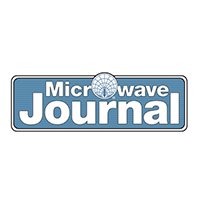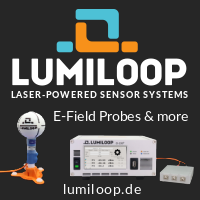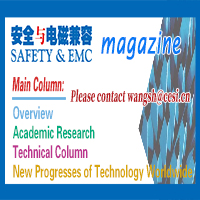Special Sessions
Machine Learning Aided Signal Integrity, Power Integrity, EMC and EMI
Date: Tuesday, August 6
Time: 10:30 AM – 5:00 PM
Location: 125AB – Phoenix Convention Center
Sponsored by SC 3
Co-Chairs:
Lijun Jiang, Missouri University of Science and Technology, USA
Alistair Duffy, De Montfort University, UK
Machine learning is having a profound effect on the landscape of every technology domain, including signal integrity, power integrity, EMC, and EMI engineering. This special session will present the state-of-the-art in our IEEE Society. It will focus on the paradigm shift of using machine learning to generate innovations in a way that’s differentiate to traditional design and analysis approaches. The session will aim to draw deeper analysis and facilitate open discussions about the pros and cons of machine learning in EMC/EMI, SI and PI.
Medical Device EMC
Date: Wednesday, August 7
Time: 3:30 PM – 5:00 PM
Location: 125AB – Phoenix Convention Center
Co-Chairs:
Ji Chen, University of Houston, Dept. of Electrical & Computer Engineering, Houston, TX, USA
Ananda Kumar, Center for Devices and Radiological Health, U.S. Food and Drug Administration, Baltimore, MD, USA
With the continuous advancement of electrical and electronic medical instruments, there is an increasing prevalence of medical devices that can be implanted inside the human body or operated in close proximity to humans. However, the operation of these devices introduces the emission of electromagnetic signals, raising safety concerns for individuals. Moreover, the potential interaction of these devices with nearby medical equipment poses risks of device interference and malfunctions, especially in scenarios involving multiple electronic devices implanted within human bodies.
Addressing these challenges requires the establishment of comprehensive scientific standards for both human safety and product safety assessment methodologies. Further advancements in computation and measurement techniques are crucial to achieve this objective. This special issue aims to delve into various critical aspects of Electromagnetic Compatibility (EMC) concerning electromagnetic safety and its application in biomedicine.
The areas to be covered in this Special Session include:
- Computational Methods for Interaction with Biological Bodies
- Human Exposure Safety and Compliance Assessment
- EMC in Biomedicine
This special issue aims to contribute to the ongoing discourse in the field by exploring these diverse and crucial topics in EMC, fostering the development of advanced scientific standards and methodologies for enhanced safety in the rapidly evolving landscape of medical electronics.
EMC & EMF Safety of Wireless Power Transfer Systems
Date: Thursday, August 8
Time: 8:30 AM – 10:00 AM
Location: 127C – Phoenix Convention Center
Co-Chairs:
Silvano Cruciani, University of Tor Vergata, Rome, Italy
Francesca Maradei, Sapienza University, Rome, Italy
Wireless Power Transfer (WPT) technology is poised to revolutionize electric mobility in the near future. This technology facilitates the transmission of electrical energy from a power source to an electric vehicle (EV) without the need for physical connections, making it a crucial component for the advancement of electric transportation. Unlike traditional plug connections, WPT offers several advantages: it enhances safety by eliminating the need for cables that users must connect to the vehicle, and it improves convenience by automating the charging process.
Both stationary and dynamic WPT systems, based on inductive coupling, are an intentional source of strong magnetic fields in the environment. These fields pose potential health risks to individuals exposed to them and may interfere with the operation of electronic systems in vehicle and on roads, including cardiac implanted electronic devices (CIEDs) worn by passengers and pedestrians. Addressing electromagnetic compatibility (EMC), electromagnetic fields (EMF) safety, and electromagnetic interference (EMI) in CIEDs is a critical challenge for the widespread deployment of WPT systems. This special session focuses on models, methods, technologies and applications for the characterization and mitigation of the electromagnetic field emission produced by stationary and dynamic WPT systems for e-mobility. The assessment of compliance with EMC, EMF safety, and CIED standards is also a central theme of the special session.
Stochastic Electromagnetics
Date: Thursday, August 8
Times:
Part I – 10:30 AM – 12:00 PM
Part II – 1:30 PM – 3:30 PM
Part II – 3:30 PM – 4:30 PM
Location: 127C – Phoenix Convention Center
Sponsored by TC 4
Co-Chairs:
Paul Bremner, RobustPhysics, San Diego, CA, USA
Evelyn Dohme, Sandia National Laboratories, Albuquerque, NM, USA
Many design challenges in EMC and Signal Integrity involve complexity and uncertainty that can only be quantified statistically. Reverberation chamber testing in EMC; bit error rate (BER) metric for signal integrity (SI) and RMS delay spread in 5G/6G wireless are examples. Stochastic Electromagnetics encompasses both probabilistic simulation methods and supporting statistical testing methods that are rapidly evolving to reliably address these challenges.
This special session will highlight new developments in emerging Stochastic Electromagnetics, such as stochastic power balance, random coupling modeling, and stochastic Green’s function analysis. The scope of this session encompasses all aspects of stochastic EMC methods, including novel theoretical developments, practical implementation and complexity analysis, and experimental validation.











